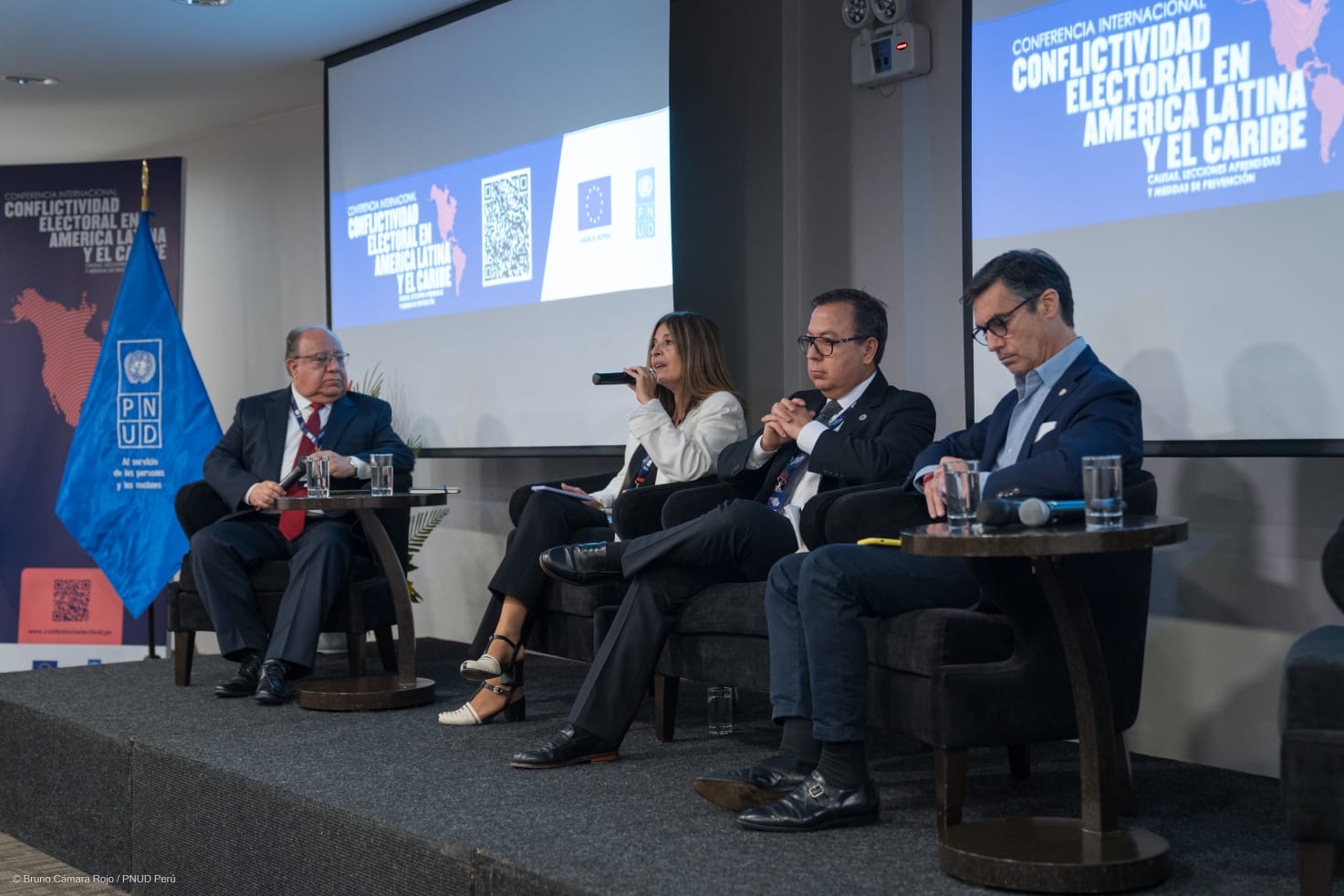Global challenges are growing considerably and there is a pressing need for all key actors to get together and coordinate actions that can guarantee that we all tackle issues related to democracy, good governance and sustainable development in the best possible way.
Search
Region
Country
Type
يوفر هذا الدليل منهجية تمكن مؤسسات المجتمع المدني العاملة في مجال المراقبة الانتخابية في المنطقة العربية من إصدار تقاريرها بطريقة مبنية على منهج علمي بعيدة عن التحاليل والانطباعات الشخصية أو غير الموضوعية.
The International Institute for Democracy and Electoral Assistance’s (International IDEA) Council of Member States has selected Dr Kevin Casas-Zamora as the Institute’s new Secretary-General.
The global average for women’s representation in parliaments was 24 per cent in January 2019. Political parties are identified as responsible for women’s underrepresentation, given their role as the main gatekeepers of elected decision-making positions in most countries.
The key findings on press freedom derived from the most recent update to the Global State of Democracy (GSoD) Indices data are as follows:
When elections take place in countries transitioning from authoritarianism to democracy, from deep political crises to stability, or from war to peace, their significance is greater than usual.
You may have heard “Litecoin”, “Ripple” or “Ethereum” tossed around in conversation. If not, you’ve certainly heard of “Bitcoin”—the most popular of virtual mediums of exchange, known as cryptocurrencies. Over the decade since their inception, these digital monies have taken the finance world by storm.
While there are general principles that apply to the judiciary in all federations, there are different ways of structuring a federal judiciary and allocating authority, or competence, to it.
Each approach raises different issues for consideration and decision. The choices made can be informed by comparative experience but will depend on the context and preferences of each federation.
More than 600 persons gathered in the premises of the Third Age University in Bruges, Belgium, to listen to Secretary-General Yves Leterme as he delivered a presentation and answered questions on the state of democracy around the world.
Cryptocurrencies are a new form of digital money or asset that could drastically change the flow of resources around the world.
Transparency in the funding of campaigns, political parties and democratic politics is at the heart of the international anti-corruption agenda.
The adoption of commitments on political finance transparency as part of the Open Government Partnership is an important step in that direction.
A lack of information on how much money circulates in and around elections, where resources are coming from and how they are spent could facilitate corruption and undermine integrity of political participation and representation. Transparency in the funding of political parties and election campaigns plays a key role in advancing global anti-corruption agenda.
International Women’s Day presents an opportunity to take stock and reinforce the sought-after goals for women’s empowerment in all spheres of life. The global pursuit to #BalanceforBetter can only be attained when there is zero tolerance for any form of discrimination against women and girls, when there is no impunity for violence against all women and girls, not because they are daughters, sisters, wives or mothers but simply because they are human.
The key findings on political gender equality derived from the most recent update to the Global State of Democracy (GSoD) Indices data are as follows.
This issue of the GSoD In Focus explores the contribution that the Global State of Democracy (GSoD) Indices can make to the review of progress on the United Nations’ 2030 Agenda for Sustainable Development and the Sustainable Development Goals (SDGs).
Committed to the principles and practices of democracy, the Secretary-General as the most senior officer of International IDEA, is ultimately responsible for the leadership of the institute, ensuring the mobilization of political and financial support to expand the Institute’s impact and relevance.
Collective demands for the constitutional accommodation of territorial cleavages are pervasive across very diverse contexts.
In many countries, political identification on the basis of territory is a central basis of political mobilization, around which political claims are framed, political parties formed, elections contested, governments composed, and constitutional claims made and resisted.
International IDEA organized a two-day roundtable discussion in The Hague, on 27 and 28 November 2018, to convene participants from electoral management bodies (EMBs) and cybersecurity agencies, as well as academics and independent experts from 20 countries: Albania, Austria, Belgium, Bulgaria, Canada, Denmark, Estonia, Finland, Latvia, Lithuania, Mexico, Moldova, The Netherlands, Norway, Romania, South Africa, Sweden, Ukraine, The United Kingdom and The United States of America.
The Office of International IDEA to the European Union organized a Meeting of Representatives of International IDEA Member States in Brussels on 3 December 2018. The meeting was hosted by the Permanent Mission of the African Union to the European Union and the African, Caribbean and Pacific Group of States.
Luxembourg joined International IDEA as the 32nd Member State of the organization when the Council of Member States met in Stockholm on 13 December 2018. The Member States welcomed Luxembourg to the organization and looked forward to cooperating to promote sustainable democracy worldwide. Luxembourg noted in its application that the country subscribes to the mandate of International IDEA to promote and strengthen sustainable democracy at the global and national levels.


